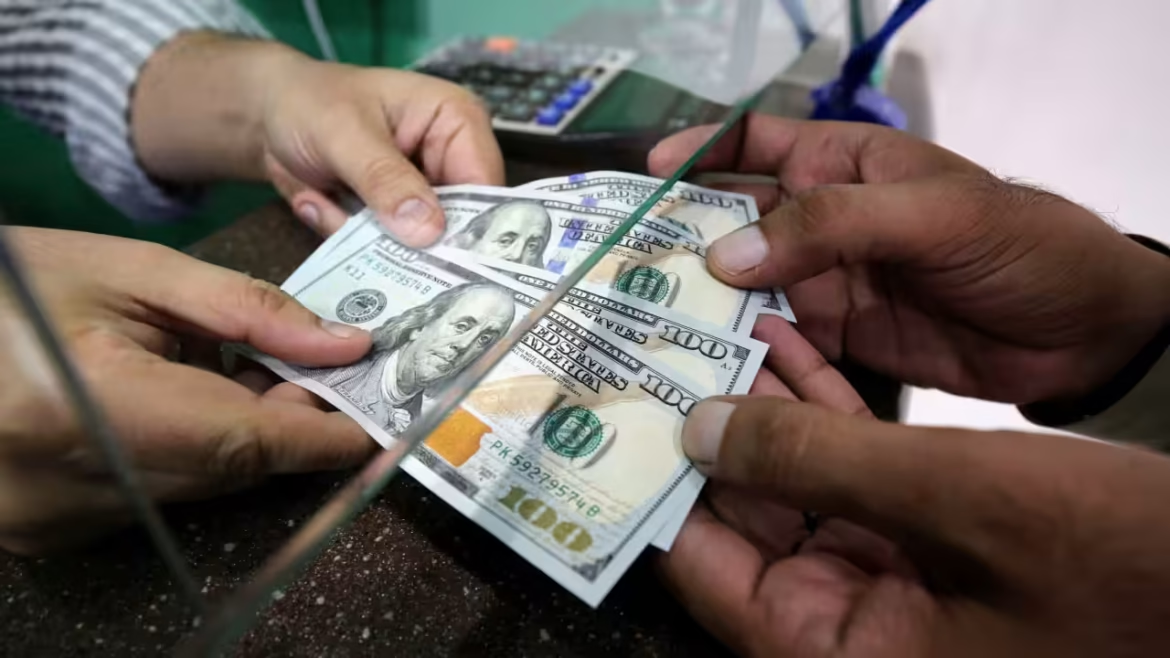The U.S. dollar has experienced a sharp decline following remarks from former President Donald Trump, suggesting that he may soften his approach toward China tariffs if he were to regain office. This statement has created ripples in the financial markets, igniting a flurry of speculation about the future of the U.S.-China trade relationship and the potential economic consequences.
Trump’s comments came as part of a larger discourse on U.S. foreign policy and trade practices, and immediately spurred conversations in the business world. His history of implementing aggressive trade policies, especially in relation to China, was a cornerstone of his presidency. However, the possibility of a policy shift—marked by a softer stance on tariffs—has altered expectations regarding the U.S. dollar’s future performance.
During his tenure, Trump’s administration imposed tariffs on hundreds of billions of dollars worth of Chinese goods. The tariffs were designed to reduce the U.S. trade deficit, protect American jobs, and bring manufacturing back to U.S. soil. While this approach was popular with some American industries, it also led to unintended consequences: rising costs for U.S. consumers, strained relationships with key trading partners, and increased inflationary pressures. As a result, the dollar often appreciated due to the economic policy and the defensive stance the U.S. took.
Trump’s new remarks, which suggest he could revise his hardline trade stance in an effort to reset the relationship with China, have raised questions about the potential effects on the broader market. The trade war, which has been a driving force for economic policy in recent years, could potentially ease under a softer approach. However, financial analysts remain divided on whether this would positively impact the global economy or result in more volatile currency markets.
The immediate impact of Trump’s statement was felt in the foreign exchange markets, as the U.S. dollar fell against a basket of other major currencies. The dollar’s value is closely tied to trade flows and geopolitical developments, and any sign of a shift in U.S. trade policy toward China can significantly influence market sentiment. A more favorable trade relationship with China, coupled with the reduction or removal of tariffs, could encourage investment and trade, potentially leading to an economic boost. This would, in turn, impact the demand for the U.S. dollar on the global stage.
Investors, however, remain cautious. The dollar’s decline could be a temporary reaction to Trump’s comments, and some analysts warn that a change in trade policy might not resolve underlying issues like intellectual property theft, forced technology transfers, or the large trade imbalance between the two countries. These longstanding issues would likely require complex negotiations and careful policy execution—factors that could ultimately weigh on market confidence.
Moreover, Trump’s remarks come at a time of rising global inflation and the tightening of monetary policy by central banks around the world. The Federal Reserve has been raising interest rates in an attempt to control inflation, which can have an impact on the U.S. dollar’s strength. A weakening dollar might make imports more expensive for American consumers, leading to further inflationary pressures.
Some analysts view Trump’s suggestion of a more lenient approach to tariffs as part of a broader strategy to regain favor with both domestic and international audiences. During his presidency, his “America First” rhetoric resonated strongly with voters who wanted a tougher stance on China. However, with the complexities of global trade now more evident, many believe that Trump could soften his position to attract business support and appear more diplomatic ahead of potential future presidential elections.
Others, however, remain skeptical of any significant change in Trump’s approach. As an experienced negotiator, he may be using this shift in tone as a bargaining chip in trade talks or as a means of signaling a potential reset with China. Such statements could serve to keep China on its toes, with Trump aiming to demonstrate flexibility without fully abandoning his tough stance.
The decline in the U.S. dollar following Trump’s remarks is reflective of the broader global economic uncertainty. The dollar has long been viewed as a safe-haven currency, with investors flocking to it during periods of financial instability or geopolitical tension. As such, any indication of significant policy changes—especially related to the U.S.-China trade dispute—can have wide-reaching consequences for the dollar’s trajectory.
The current environment is complicated further by the evolving global economic landscape, with growing concerns over the economic health of major players like China, the U.S., and the European Union. Trump’s suggestion of easing tariffs could signal an attempt to reduce tensions with China, but it’s also important to note that the U.S. economy is still dealing with the ripple effects of the pandemic, inflationary pressures, and supply chain disruptions. While reducing tariffs could be a positive step, it would not automatically solve these complex challenges.
The U.S. dollar’s weakness following Donald Trump’s comments reflects the importance of the U.S.-China trade relationship in shaping global currency markets. As the situation continues to unfold, market participants will be closely monitoring whether Trump’s remarks are indicative of a real shift in policy or simply a negotiating tactic designed to alter the dynamics of future trade talks.
The dollar’s response to such policy changes will depend on how the global market reacts to the evolution of U.S. trade policy. If tariffs are indeed eased, it could lead to increased stability in trade relations between the U.S. and China, which may have positive effects on both economies. However, the road ahead is uncertain, and financial markets will likely continue to react to any new developments that arise, making it essential to remain attentive to any future shifts in U.S. trade and economic policy.



